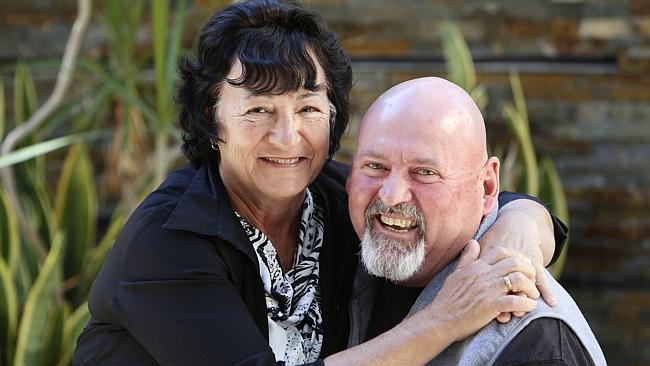
Neil Kennedy and wife Judy, from Rockhampton, have quit their jobs and moved to Brisbane for seven weeks so Neil’s cancer of the throat can be treated. Source: News Limited
THEY grow the food we eat and generate $32 billion in exports but the people in the bush heartland of Australia are dying three years earlier because of poor access to health care.
Today The Sunday Mail launches a five-week campaign asking state and federal governments to make significant changes that will dramatically ease the bush health crisis.
We will focus on the policy changes needed to improve cancer care in the bush, maternity services, subsidies to encourage doctors to work in rural Australia, patient travel subsidies and aged care.
Dying younger is the price of poor bush health services
Farmers considered splitting their family to access health care
Experts alarmed at high obesity rate in rural Queensland
A cancer diagnosis is shattering no matter where you live but few Australians realise their chance of surviving the disease depends on geography.
Rural cancer patients are up to 30 per cent more likely to die than those living in the city because they can’t access radiotherapy treatment. It costs $7 million to put in a linear accelerator and $750,000 a year to staff it. In a national health budget of $140 billion a year it should not be too hard to find the funds.
Australia’s health budget blowout 4:19

The Grattan Institute’s CEO, John Daley, explains how the nation’s medical expenditure grew by forty billion dollars in ten years.
- The Australian
- 25 Jun 2014
- Business
Neil Kennedy, 50, was forced to quit his job and relocate from Rockhampton to Brisbane with wife Judy when he was recently diagnosed with throat cancer.
He said while he couldn’t fault the service provided to him in Brisbane, it was disappointing he had to relocate for his seven-week treatment.
“If I was working in Brisbane I could still work while getting treatment. It definitely is easier for Brisbane people than regional people,” he said.
Many country birthing units are closing and Professor David Tiller from University of Sydney’s School of Rural Health has called for specialist obstetrics training in the bush. As an obstetrician, if you get appointed to a big city hospital you should also be appointed to carry out rotational practice in a rural facility, he said.
A shortage of medical specialists in rural towns means rural patients often have to travel to the city, and state government-funded patient travel schemes go nowhere near reimbursing the true cost.
Dr Ian Roos, of cancer patient lobby group CanSpeak, said the subsidy amounted to “what it costs you to put your pet dog in a kennel while you get your cancer treatment”.
He said state governments should reimburse patients at least 63 cents per kilometre for using their private car, and raise the accommodation allowance to tax office or public service rates, he said.
Although the Federal Government is providing incentives to doctors to relocate to a rural area the scheme is skewed to encourage doctors to move to coastal towns rather than bush outposts.
A doctor who moves to Cairns will get double the money on offer for a doctor who moves to inland Orange.
The Coalition has pledged to calibrate incentives to get doctors into towns where they are most needed.
